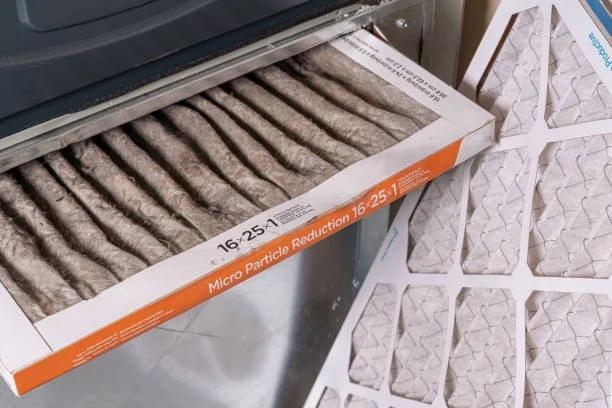How Often Should You Change Your HVAC Filter?
RH Business Marketing Solutions
Maintaining the health and efficiency of your HVAC (Heating, Ventilation, and Air Conditioning) system is crucial for ensuring a comfortable indoor environment. One of the most important yet often overlooked components of HVAC maintenance is the regular air filter replacement.
This article discusses how often you should change your HVAC filter, the factors influencing this schedule, and the potential impacts of neglecting this essential maintenance task.
Understanding the Role of HVAC Filters
HVAC filters are crucial in maintaining the cleanliness and efficiency of your home's air circulation system. These filters are engineered to capture and isolate airborne contaminants, including dust, pollen, pet dander, and other particulates. By trapping these pollutants, the filters can significantly enhance indoor air quality, making your home environment safer and more comfortable, particularly for those with allergies or respiratory issues.
Additionally, filters can protect the HVAC system by preventing dust accumulation. Without a clean filter, accumulated dust can obstruct airflow and impair the system's efficiency, leading to increased energy consumption and reduced lifespan. This dual role of purification and protection is essential for your HVAC setup's optimal performance and durability.
Importance of Regular Filter Changes
Regularly changing your HVAC filter is vital for several reasons:
Enhanced Air Quality: A clean filter more effectively traps contaminants and allergens, which can be particularly beneficial for individuals with allergies or respiratory issues.
Energy Efficiency: A clogged filter forces the HVAC system to work harder, which can increase energy consumption and utility bills.
System Longevity: Clean filters can help prevent dust and dirt from building up in the system, thereby avoiding unnecessary strain on the HVAC components and extending the system's lifespan.
How Often Should You Change Your HVAC Filter?
The frequency at which you should change your HVAC filter depends on various factors, including the filter you use, indoor air quality, and living conditions. Here are general guidelines to help you determine a suitable filter replacement schedule:
Standard Disposable Filters
For basic 1-3 inch disposable filters, it is advisable to change them every 30 to 90 days. Changing the filter every three months may suffice if you reside in a less polluted area or use your HVAC system minimally. However, checking and possibly changing your filter monthly can help maintain optimal performance in high-use periods like summer and winter.
Enhanced Filters and High-Efficiency Particulate Air (HEPA) Filters
If your system uses high-efficiency filters, such as HEPA filters, they typically have a longer lifespan. Depending on usage, these filters can usually last between 6 to 12 months. Always consult the manufacturer's guidelines to determine the ideal replacement interval for these types of filters.
Factors That May Require More Frequent Changes
Some specific circumstances may necessitate more frequent filter changes, including:
High Occupancy: Homes with multiple occupants, and thus more foot traffic, may need to replace their filters more often.
Pets: Pet owners should consider replacing their filters every 60 days or more frequently if shedding is significant.
Allergies or Respiratory Conditions: For homes with allergy sufferers or individuals with respiratory conditions, more frequent changes can help manage symptoms by maintaining cleaner indoor air.
Construction or High Pollution Areas: Living in areas with high dust or undergoing home renovations can drastically reduce the effectiveness of a filter.
To assess your specific needs and improve your filter change schedule, consider taking an indoor air property quiz, which can provide personalized advice based on your home environment and lifestyle.
DIY Tips for Changing Your HVAC Filter
Changing your HVAC filter is a simple and essential task that can be done without professional help. Here’s how to ensure a smooth change:
Identify the Right Filter Size: Check your HVAC unit for the filter size, which is usually indicated on the old filter or the unit itself.
Purchase the Correct Replacement: Buy a filter that matches your HVAC system's size and quality requirements.
Power Off the System: Always turn off the system before changing the filter to avoid any safety issues.
Remove the Old Filter: Take out the old filter and dispose of it according to local regulations.
Insert the New Filter: Place the new filter in, ensuring it faces the correct direction (arrows on the filter frame should point towards the furnace or air handler).
Conclusion
Regularly changing the HVAC filter is a straightforward yet crucial part of home maintenance that significantly impacts the air quality and efficiency of your heating and cooling system. Adhering to the recommended filter change schedule, considering your specific living conditions, and responding to the needs of your household can lead to a healthier, more comfortable home environment. Remember, each home is unique, so it’s essential to adjust maintenance tasks to best suit your circumstances and ensure your HVAC system runs smoothly year-round.
